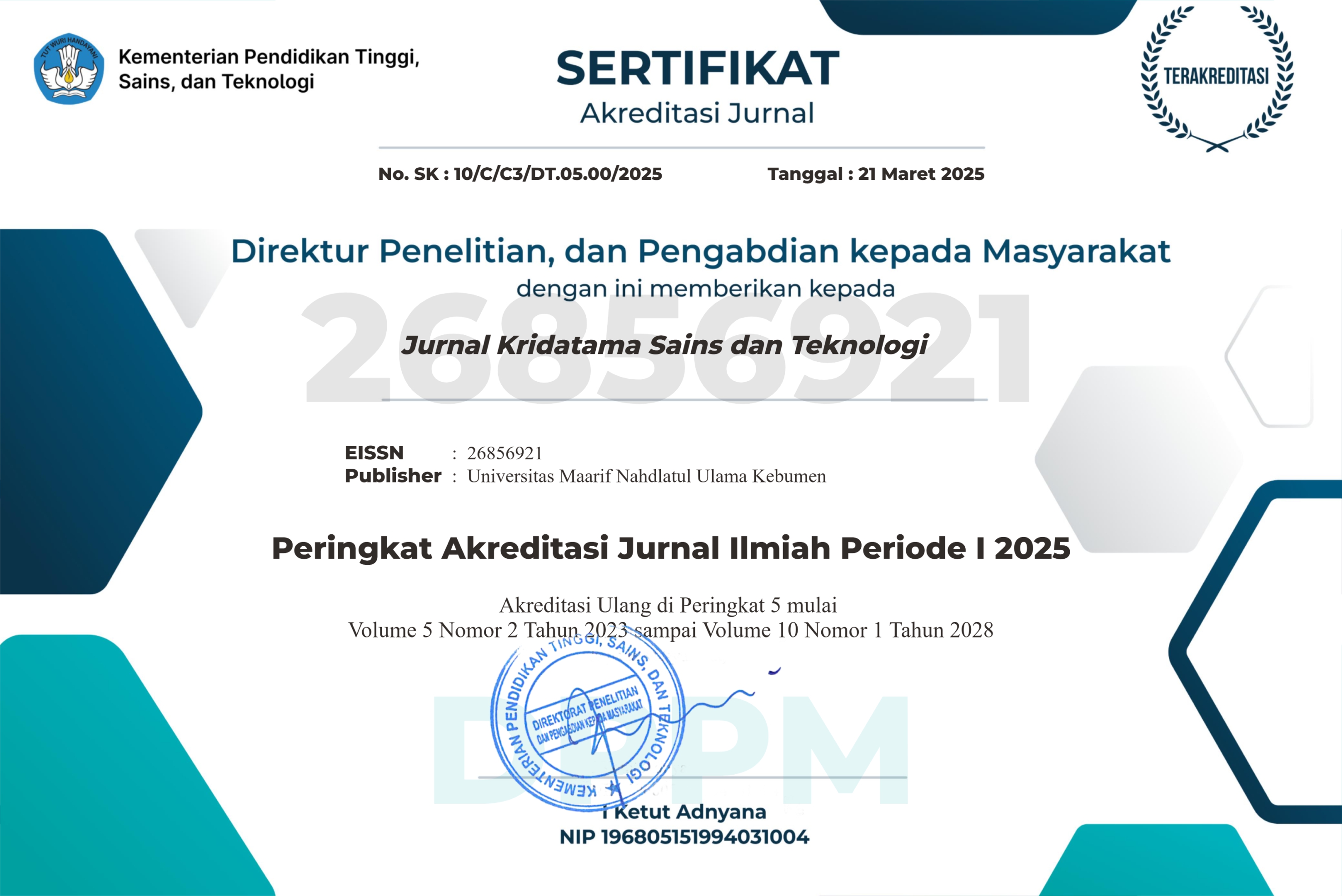Revolusi Pemikiran: Memahami Peran Pendidikan dalam Menghadapi Era Teknologi 5.0
DOI:
https://doi.org/10.53863/kst.v6i01.1067Keywords:
Education; technology era 5.0; revolution of thoughtAbstract
This article discusses how education can act as a fundamental pillar in shaping human thinking to face the complex challenges that arise along with technological advances. Education not only guides individuals in spiritual, moral and ethical aspects, but also plays a central role in shaping human paradigms regarding technological innovation. Teachers' ability to use technology is also a form of readiness to face the technological era 5.0. The aim of this research is to describe the role of education in facing the technology era 5.0. The research method used in this research is literature study. The findings of this research indicate that the integration of technology in educational teaching can increase student engagement and help them develop a deep understanding of religious values. The revolution in thinking in the context of understanding the role of education in facing the Technology Era 5.0 reflects the need for transformation in the education system to answer the challenges and opportunities that arise along with technological advances. In this era, education is not only considered as a conveyor of information, but also as a catalyst for developing 21st century skills such as creativity, critical thinking, and collaboration. Education must be able to produce individuals who are not only skilled in using technology, but also able to adapt and innovate in the face of rapid change. This Thought Revolution also emphasizes the importance of inclusion and accessibility of education amidst the even development of technology.
References
Alinurdin, D. (2018). Etika Kristen Dan Teknologi Informasi: Sebuah Tinjauan Menurut Perspektif Alkitab. Veritas: Jurnal Teologi Dan Pelayanan, 17(2), 91–105. https://doi.org/10.36421/veritas.v17i2.309
Bourdieu, P. & Passeron, J. . (1990). Reproduction in Education, Society and Culture. Sage Publications.
Darmalaksana, W. (2020). Metode Penelitian Kualitatif Studi Pustaka dan Studi Lapangan. Pre-Print Digital Library UIN Sunan Gunung Djati Bandung, 1–6.
Daryanto. (2014). Pendidikan dan Pembelajaran. Rineka Cipta.
Dhawan, S. (2017). A Review of Flipped Classroom Research, Practice, and Technologies." Educational Technology & Society. 19, 3, 16–31.
Fricticarani, A., Hayati, A., R, R., Hoirunisa, I., & Rosdalina, G. M. (2023). Strategi Pendidikan Untuk Sukses Di Era Teknologi 5.0. Jurnal Inovasi Pendidikan Dan Teknologi Informasi (JIPTI), 4(1), 56–68. https://doi.org/10.52060/pti.v4i1.1173
Knight, G. R. (2018). Philosophy & education: An introduction in Christian perspective. Baker Academic.
Lee, H., Lee, J., & Kim, M. (2020). Society 5.0 and its realization through AIoT. Sustainability.
Noh Ibrahim Boiliu dan Harun Y. Natonis. (2021). Pengantar Pendidikan Agama Kristen. BPK Gunung Mulia.
Ornstein, A. C., & Levine, D. U. (2018). Foundations of education. Cengage Learning.
Prihanto, A. dan K. E. D. N. P. (2021). Pentingnya Kompetensi Guru Pendidikan Agama Kristen Dalam Menghadapi Tantangan Di Era Revolusi Industri 4.0. Jurnal Eulogia, 1 No.(1), 1–15. https://ojs.sttblessing.ac.id/index.php/eulogia/article/view/5/9
Pudjianto Bambang. (2018). Dinamika Spiritualitas Generasi Muda Kristen Indonesia. Yayasan BRC.
Randall Collins. (1971). Functional and Conflict Theories of Educational Stratification. Jurnal: American Sociological Association. 6, 36.
Saadia Zahidi. (2024). Global Risks Report 2024. World Economic Forum.
Saputra, T. (2022). Signifikansi Teori Horace Bushnell bagi Pendidikan Keluarga Kristiani di Era Revolusi Industri 4.0. Jurnal Abdiel: Khazanah Pemikiran Teologi, Pendidikan Agama Kristen Dan Musik Gereja, 6(1), 55–72. https://doi.org/10.37368/ja.v6i1.349
Surani, D. (2019). Studi Literatur?: Peran Teknologi Pendidikan dalam Pendidikan 4.0. Jurnal Universitas Sultan Ageng Tirtayasa, 2(1), 456–469. https://jurnal.untirta.ac.id/index.php/psnp/article/view/5797
Syaiful Sagala. (2014). Konsep dan Makna Pembelajaran. Alfabeta.
Undang-Undang Republik Indonesia Nomor 14 Tahun 2005 tentang Guru dan Dosen. (n.d.). UU Sisdiknas.
Undang-Undang Republik Indonesia Nomor 20 Tahun 2003 Tentang Sistem Pendidikan Nasional. (n.d.). UU Sisdiknas.
Downloads
Published
How to Cite
Issue
Section
License
Copyright (c) 2024 Febriano Peea,Djoys Rantung Anneke,Lamhot Naibaho

This work is licensed under a Creative Commons Attribution-ShareAlike 4.0 International License.
Authors retain copyright and grant the journal right of first publication with the work simultaneously licensed under a Creative Commons Attribution-ShareAlike 4.0 International License that allows others to share the work with an acknowledgment of the work’s authorship and initial publication in this journal

















